#Audi
2017 Audi A4 2.0T Quattro Review, Part Deux - Second and Third Weeks Confirm What Week One Made Clear
One year ago, Audi Canada delivered a 2017 Audi A4 2.0T to my driveway. In the official TTAC review, it was my mission to declare everything that was wrong with the fifth-generation A4.
“But there’s a problem with that strategy,” I wrote in September 2016, “because there isn’t much wrong with the 2017 Audi A4, a car that I believe has shot to the top of its segment.” One week with the Audi A4 revealed only a few faults, all of which were minor.
Fast forward to August 2017, however, and I’ve relocated to another province. Audi Canada saw fit to deliver another 2017 Audi A4 2.0T Quattro to my driveway, almost identically specced out. This time, a scheduling quirk means the A4 hangs around Margate, Prince Edward Island, for two weeks.
If a one-week stay in an urban environment couldn’t expose the B9 Audi A4 as an overpriced, underbuilt, upmarket Volkswagen, could a two-week visit to the rough-and-tumble red dirt roads of rural Prince Edward Island do the trick?
Antitrust Regulators Worried German Auto Industry Has Been Running Secret Cartel For Decades
Government authorities are concerned that Germany’s automakers have been running one of the biggest CARtels in history. Allegedly active since the 1990s, automakers used secret working groups to remain in cahoots on decisions regarding technical issues, suppliers, and cost suppression. The groups may have even set the table for Volkswagen’s diesel emissions scandal by encouraging regulatory cheating.
Major manufacturers had apparently agreed on the size of the tanks containing AdBlue, Germany’s preferred diesel treatment fluid to reduce exhaust emissions, and decided the units should be small to keep fluid prices up. When the entire system turned out to be insufficient in meeting regulatory guidelines, illegal software manipulation became the alternative solution.
Germany Forced to Appear Proactive as Anti-diesel Prejudice Swells in Europe
With Paris, Madrid, Athens, and Mexico City all pledging to ban diesel vehicles from entry within the next few years, the fuel’s future doesn’t look particularly bright. While citywide bans like these are becoming increasingly popular in Europe, diesel vehicles still account for almost half of the continent’s registered vehicles.
Germany, which has been speedily moving away from the fuel since Volkswagen’s emissions fiasco, provided more than its fair share of those diesel-powered models. It’s been mulling over how to handle it’s own regulatory matters pertaining to the fuel and the rest of the European Union’s intense pressure doesn’t seem to have fazed it.
Instead of enacting the same transportation ban on diesel vehicles as seen in Paris, Germany has decided to furnish its automakers with the opportunity to clean up their act. Industry officials and politicians have agreed to implement software updates on existing vehicles specifically to keep them eligible for operation within major metropolitan areas. Considering Mercedes-Benz just offered to “voluntarily” recall 3 million Euro-spec cars fitted with diesel engines, that’s incredibly good timing. Likewise, Volkswagen Group claims it will update 850,000 Porsche and Audi vehicles equipped with larger diesel motors.
Junkyard Find: 1976 Audi 100 LS Sedan
The Audi 100 was the car that made most Americans aware of the Audi brand for the first time. The 100 wasn’t particularly reliable in American hands, to put it mildly, and most examples were long gone by the time the 1980s came to a close.
Here’s a long-neglected ’76 that just showed up in a Colorado Springs self-service wrecking yard.
VW Bosses Told Full Emissions Costs Months Before Coming Clean: Report
Throughout the entirety of Volkswagen’s diesel emission scandal, the automaker has changed its tune on several occasions. After evading scrutiny from regulators for years, it finally admitted to installing illegal defeat devices designed to fool U.S. emission testing in late 2015. However, it assured the public that no high-ranking executive had complete knowledge of the misdeed until news of the scandal broke to outraged consumers.
Obviously, that was a lie. But no damning evidence came out indicating anyone above mid-level management had prior knowledge of the devices or any idea they would be so harmful to the company. But now a Volkswagen manager arrested earlier this year claims the automaker’s former chief executive and other top managers had been told the carmaker’s diesel emissions violations could cost up to $18.5 billion, well before the September 2015 announcement.
Audi Manager Nabbed in Germany for Role in Diesel Conspiracy; U.S. Authorities Press Charges
American investigators, hot on the trail of Volkswagen Group executives and managers with dirty hands, haven’t had the easiest time bringing suspected emissions scandal conspirators to trial. Germany doesn’t extradite citizens facing charges in other countries, making justice a tricky pursuit for U.S. authorities.
So far, only two players in the diesel deception find themselves in the arms of U.S. law enforcement— James Liang, a former executive who worked in California (and has pleaded guilty to conspiracy charges), and Oliver Schmidt, a former U.S. environmental liaison who previously worked out of VW’s Michigan emissions office. Federal agents nabbed him during a Miami layover as the German national returned home from a tropical vacation in January. Six others remain safely in Germany after a U.S. indictment.
Well, expect another trial now. Earlier this week, Munich police arrested an Italian national, Zaccheo Giovanni Pamio, the former head of thermodynamics at Audi’s engine development division. It’s the first diesel-related arrest in Germany and Pamio’s citizenship means he’s a candidate for extradition to the United States.
Now charged in connection to the scandal, American authorities hope Pamio squeals on his bosses at Audi. As for his involvement, the federal government alleges Pamio and others decided a premium sound system was a better use of vehicle space than a proper emission control system.
Maybe Quattro Isn't Everything After All - Audi Considers Rear-Wheel-Drive RS Models
Whether A3 and Q5 and Allroad drivers in 2017 know it or not, much of Audi’s modern reputation is built upon a foundation cemented by the Audi Quattro rally car in the 1980s.
In the capable hands of drivers such as Hannu Mikkola, Stig Blomqvist, and Walter Röhrl, Audi brought dominant traction to the World Rally Championship and eventually found traction in the marketplace as well.
Fast forward to 2017 and Audi consistently reports meaningful growth in the North American market. Audi sales in the United States have grown in seven consecutive years, more than doubling since 2010. And while U.S. auto sales are dipping in the first half of 2017 — including declines at the only three premium brands that outsell Audi — the Audi brand is up 7 percent, year-over-year.
Audi’s methodology has been well and truly copied by many of its rivals. Quattro isn’t the only all-wheel-drive brand in town. Badges for 4Matic and xDrive are common on the trunklids of many a Mercedes-Benz and Audi.
How then can Audi stand out from the pack? With its high-performance models, the RS variants, Audi may well drop Quattro all-wheel drive on some models in a bid for rear-wheel-drive performance supremacy.
2017 Audi TTS Review - Still More Style Than Substance, But What Style
As an automobile journalist, I’m supposed to qualify certain statements.
This car is gorgeous, I might say, but only with an asterisk that denotes beauty being in the eye of the beholder. This car is gorgeous, I might say, but not as gorgeous as its predecessors, and then I’d draw your attention to the fine print where I describe my lack of a fine arts degree.
Whatever.
The 2017 Audi TTS is gorgeous. Even more stunning than the exterior is the interior.
Yet just because the third-generation TT continues to major in the arts doesn’t mean Audi completely forgot to educate the TT in the modern STEM curriculum.
The Audi TT has always been focused more on style than substance. But the 2017 TTS is more than just a pretty face.
Ask Jack: Are You Going to San Francisco?
I will forever remember San Francisco as the only city in America where a woman tried to pick me up. While I am sure that the average TTAC reader is a handsome, impeccably progressive feminist ally who is frequently the subject of overtures from empowered womyn, I’m a hideously ugly creature who walks with a pronounced limp and cannot help but maintain an expression of perpetual annoyance. Therefore, 99 percent of the time I have to actively, if not aggressively, sell myself to any potential paramours.
Except, that is, for that one night when I was drunkenly stumbling down some broad boulevard in downtown SF, feeling very sorry for myself, and an attractive woman in her early thirties, dressed for some sort of banking or C-suite work, walked right up to me and said, “Do you know where the nearest Bank of America is?” Even in my inebriated state I could see that it was three hundred feet behind her, and I said as much. “Gosh, thanks!” she chirped. “So… lovely night, huh? What are you doing this evening?”
“Madam,” I replied with all the 18th-century dignity I could muster, straightening my posture and inhaling deeply behind the lapels of my Brioni coat, “I am attempting to forget a woman from Tennessee.” And I trudged past her. Only the next morning did I realize that perhaps she had already known the whereabouts of the bank before asking. Oh well. Ever since then, however, I have assumed that the relatively low number of even remotely conventional men in that particular city drives women to make desperate choices.
Which brings me to today’s San Francisco treat of a question.
No Matter How Big Audi SUVs Get, Don't Ever Expect a Diesel
Audi’s European introduction of the beastly SQ7 SUV caused no shortage of speculation last year. Even as Volkswagen Group’s emissions scandal raged, many hoped the raw power of the SQ7’s cutting-edge diesel engine would be enough to compel Audi to bring the model stateside.
Waiting followed. Then, even more waiting. Audi told excited journos it hadn’t greenlit the model for a U.S. launch, despite its very marketable 435 horsepower and 664 lb-ft of torque — power made possible by 4.0 liters of displacement, two turbochargers and a lightning-quick electric supercharger.
Late last year, Volkswagen CEO Herbert Diess put the chill on expectations, telling everyone it wasn’t likely they’d ever see a new diesel Volkswagen product in the United States. This, despite current advancements in diesel technology. It now seems any hesitation the automaker might have felt about that proclamation has evaporated.
Diesels? Dream on.
2017 Audi Q7 2.0T Review - Two Point Dough
I was incredulous. My eyes must have been deceiving me. The number at the top of the page surely did not belong with the number at the bottom of the page. I rubbed my eyes, took another swig of the awful office coffee, and looked again at the window sticker that arrived in my inbox.
The price was indeed right. Audi would be delivering a $58,725 Q7 to my door the next day.
However, the 2.0T nomenclature at the top of the page was a shock. A three-row luxury SUV from a premier German manufacturer with a four-cylinder engine under the hood? Inconceivable. Can the two-liter turbo really move this big SUV with Teutonic aplomb?
Americans Want It Bigger, and Audi's Working On It
As Audi pushes new and refreshed product out the door in a mad rush, hoping to create the youngest lineup of any German automaker, it can’t ignore the requests of brand loyalists. In the United States, those buyers want one thing more anything else: a bigger SUV.
The three-row Q7 is nice, but in the land of Expeditions and Suburbans, it simply doesn’t measure up. Space-obsessed German vehicle aficionados can climb into a Mercedes-Benz GLS and enjoy more room. Naturally, Audi isn’t about to let an opportunity slip away.
It also wants to do something about those pesky buyers who want more cargo room, but won’t drive an SUV.
Audi's Next-Gen A8 Adds Mild Hybrid Arrangement as Standard; Other Models to Follow
There’s a bit of an automotive renaissance occurring just below the radar. While pure electrics and plug-in hybrids garner endless headlines, several luxury brands are sneaking more mild hybrid arrangements under their vehicles’ hoods via a 48-volt electrical system.
Audi is a firm believer in the technology and is making moves to implement the system in numerous vehicles in its lineup, starting with the fourth-generation A8 arriving later this year. Combining regenerative braking with a small lithium battery and belt-driven alternator, the system harnesses wasted energy and is a more affordable way to tap into the benefits of hybridization. So affordable, automakers are using the KERS-like system on models as standard equipment, not a optional extra.
In this regard, Audi’s A8 is no different. The next generations of the A6 and A7 will also use the technology.
Volkswagen Expands U.S. Fire Risk Recall to Almost 300,000 Porsche and Audi SUVs
Volkswagen Group is adding another 292,000 Porsche and Audi vehicles to an earlier recall relating to a fuel-pump defect that could result in fires. The National Highway Traffic Safety Administration has issued an alert concerning specific models of the Porsche Macan, Audi Q5 and Audi Q7 sport-utility vehicles.
The problem stems from a flaw in the fuel-pump flange, manufactured by Continental AG, that could create a leak and potential fire hazard.
Cash Coming to 3.0-liter Diesel Owners as Judge Approves $1.22 Billion Volkswagen Settlement
Is was probably with a sigh of relief that U.S. District Judge Charles Breyer granted final approval to a settlement for owners of 3.0-liter diesel Volkswagen Group vehicles earlier today. The issue has consumed no shortage of court time both before and after last December’s preliminary approval for a buyback, compensation and fix plan.
More than 80,000 Volkswagen, Porsche and Audi models were sold with engines rigged to cheat on emissions tests. Many of those units will now be bought back and others fixed — a plan with a minimum $1.22 billion price tag.
Breyer’s approval marks the end of the automaker’s main legal wranglings in the U.S. It also opens the cash floodgates, as even owners who opt for a fix will see a pile of crisp, clean dollars from VW.




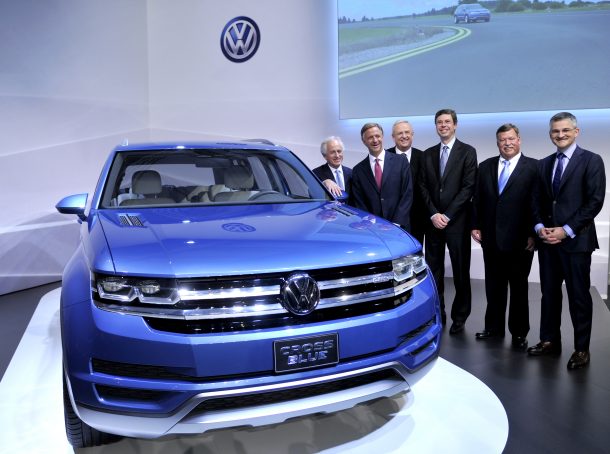

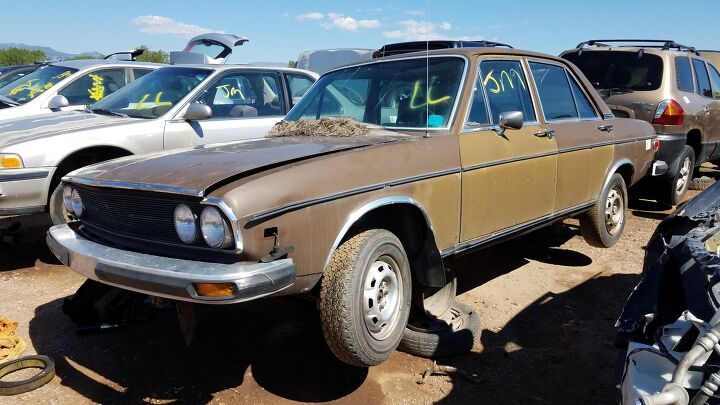
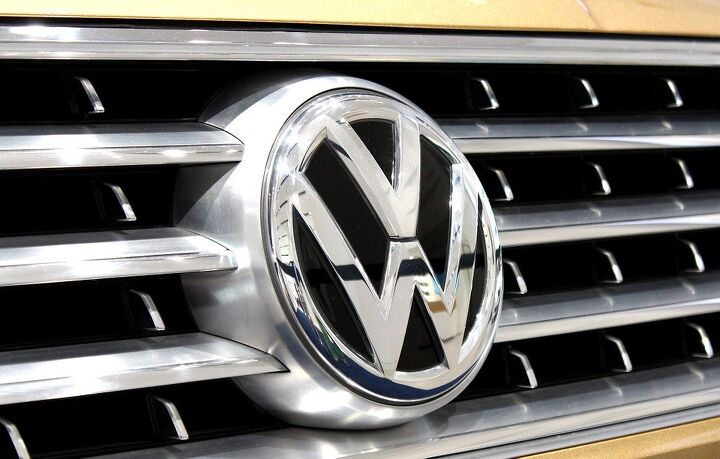

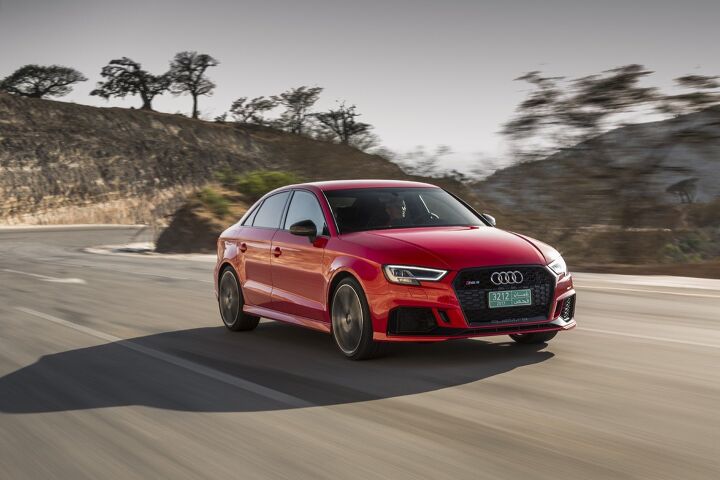
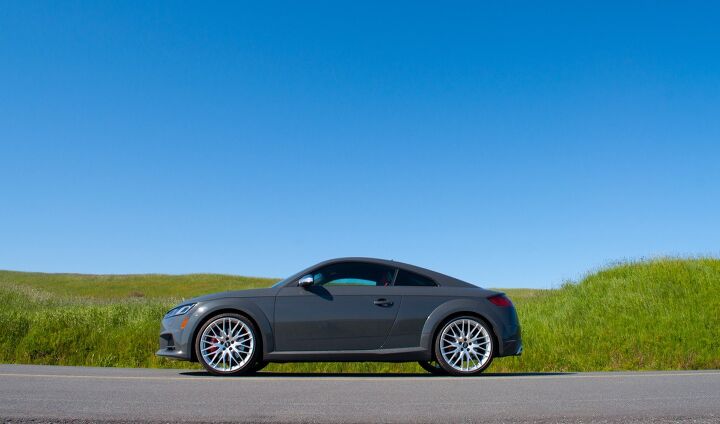





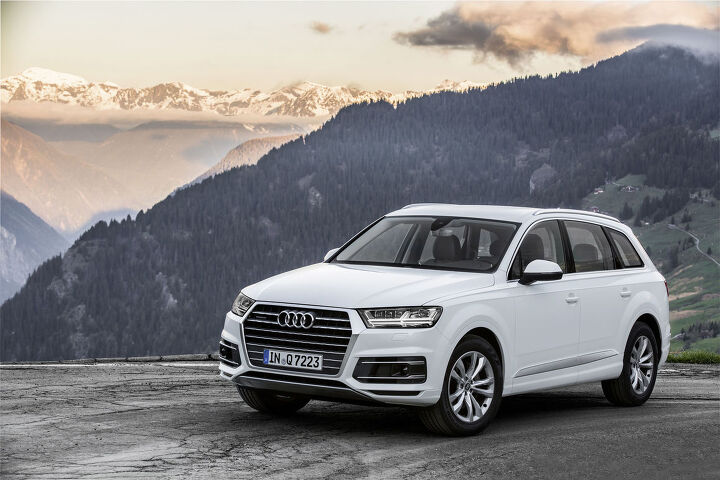













Recent Comments